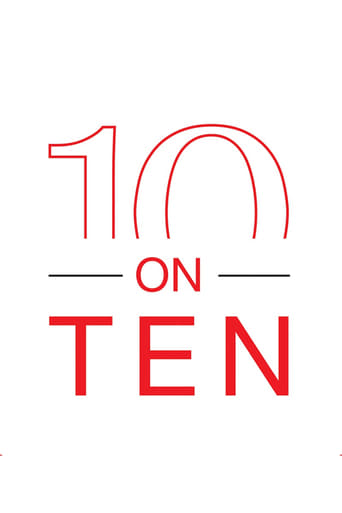Red-125
10 on Ten (2004) is a documentary written, directed, and starring the great Iranian director Abbas Kiarostami. Kiarostomi directed the film Ten in 2003. 10 on Ten is presented on the same Zeitgeist DVD as Ten. We wouldn't have sought out this movie, but we watched it because we like Kiarostami's work, and we obviously had easy access to the film.The movie takes place entirely within Kiarostami's car, and is divided into ten parts. Ten also takes place entirely within a car, and is divided into ten parts. However, 10 on Ten isn't just concerned with the movie Ten. Kiarostomi gives us an overview of how he makes movies. Sometimes he references Ten, but other times he speaks about other films he's made.Kiarostomi tells us that he never went to film school. He is entirely self-taught, and he points out that some of his methods are unorthodox and might not work for another director. The topics he covers are basic, not esoteric: camera, subject, script, location, etc. However, as simple as the headings are, the information he presents to us is sometimes esoteric and difficult to grasp. (At least, I found it difficult to grasp.) Still, I understood more than enough to make me glad I had watched the film.This isn't a movie for everyone. However, if you're a Kiarostami fan, or if you're interested in how a director thinks when he or she is making a film, then you'll enjoy 10 on Ten.I believe that the movie Ten is definitely worth seeing. Once you've sought out and seen Ten, you could consider watching 10 on Ten. If you don't like it after the first two or three chapters, just hit eject. If you like the movie, watch it to the end. It should work as well on DVD as it would on the large screen.
estephan
This is simply a very detailed set of lessons and ideas from kiarostami on the unique formula he has struck for making films. kiarostami lovers will find it definitely fulfils their thirst for thoughts on his genius. if you're not a huge fan, this, like his movies, will seem slow and too detailed for some. you will learn about: why he loves cars as settings so much. how he thinks digital video cameras are the most important new thing ever. plus thoughts on music, actors, [lack of] screenplay, etc. etc. etc. Fun -- he gives the lesson from a car's drivers seat as he drives around. Just like his movies! clever.
Omar Mouallem
This isn't so much a documentary as it is an 80 minute class with Iranian auteur Abbas Kiarstomi. Using his movie "Ten" as an example, he breaks down his theory of filmaking in 10 chapters, ranging from his preference of camera, to his take on character and directing.Don't expect a doc with include scenery and talking heads. There is only one talking head, Kiarstomi's, as it drives cross countryside alone. But that's the beauty of this. It was just him and a camera and some free time.He's talking directly at us. Giving us a very personal talk that would otherwise take place in his head.Kiarstomi is an ego-centric who says something profound and knows it. Sometimes he says something hilarious and doesn't. But he is honest and proud, with a confidence worthy of envy. At the end of the film he promises us some scenery. He gets out of the car, living the window open to a blurry tree. And then you hear him, peeing, somewhere off camera.
sixhat
In this movie, Abbas Kiarostami gives the spectator an outstanding personal view of what is Cinema, how it can be simple and what it isn't or shouldn't be. This is a lesson for those who study cinema and for those who see cinema. An must see if One wants to understand more about movies, and more about the Abbas Kiarostami career. The movie is divided in a series of small episodes, small lessons if you prefer, that cover all the aspects of movie making, from the actors, to the accessories, going through sound and image, and ending with the role of the director and a vision of what is the actual state of cinema. Abbas Kiarostami, reflects, as he drives is four wheel drive, in the scenery of one of is movies, on the condition of cinema, and tryst to give young students material for a profound reflection on each one's work.
